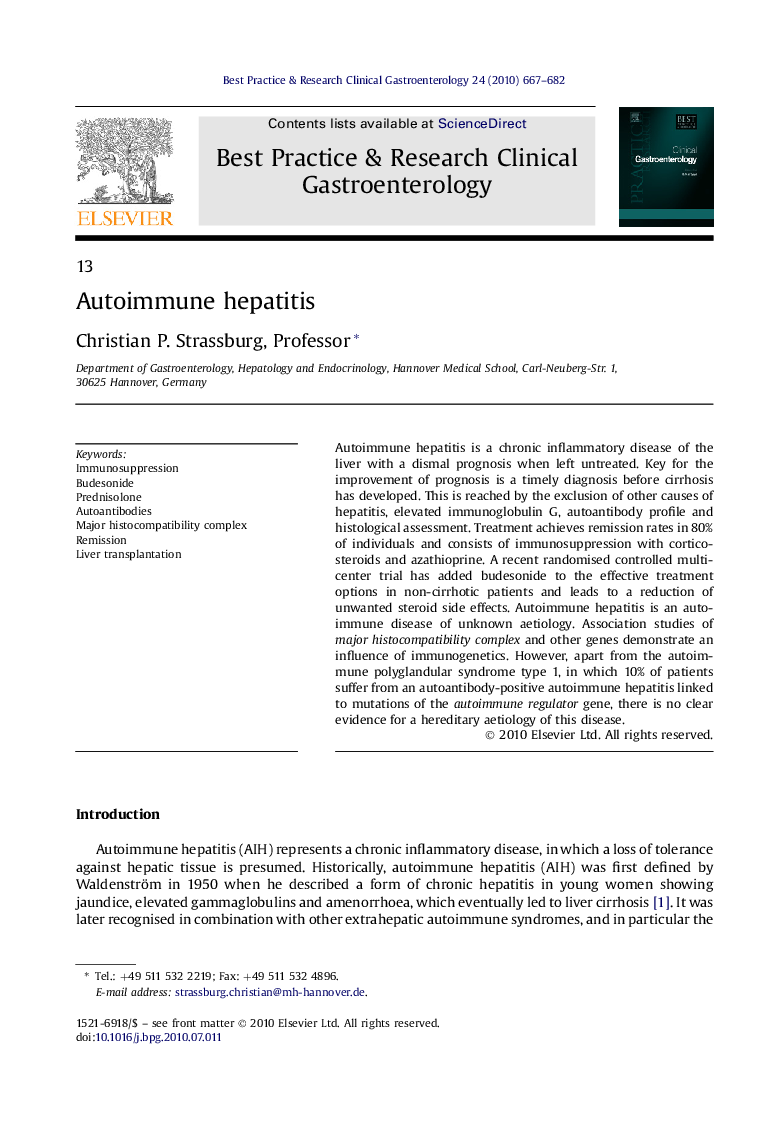| Article ID | Journal | Published Year | Pages | File Type |
|---|---|---|---|---|
| 3254294 | Best Practice & Research Clinical Gastroenterology | 2010 | 16 Pages |
Autoimmune hepatitis is a chronic inflammatory disease of the liver with a dismal prognosis when left untreated. Key for the improvement of prognosis is a timely diagnosis before cirrhosis has developed. This is reached by the exclusion of other causes of hepatitis, elevated immunoglobulin G, autoantibody profile and histological assessment. Treatment achieves remission rates in 80% of individuals and consists of immunosuppression with corticosteroids and azathioprine. A recent randomised controlled multicenter trial has added budesonide to the effective treatment options in non-cirrhotic patients and leads to a reduction of unwanted steroid side effects. Autoimmune hepatitis is an autoimmune disease of unknown aetiology. Association studies of major histocompatibility complex and other genes demonstrate an influence of immunogenetics. However, apart from the autoimmune polyglandular syndrome type 1, in which 10% of patients suffer from an autoantibody-positive autoimmune hepatitis linked to mutations of the autoimmune regulator gene, there is no clear evidence for a hereditary aetiology of this disease.
